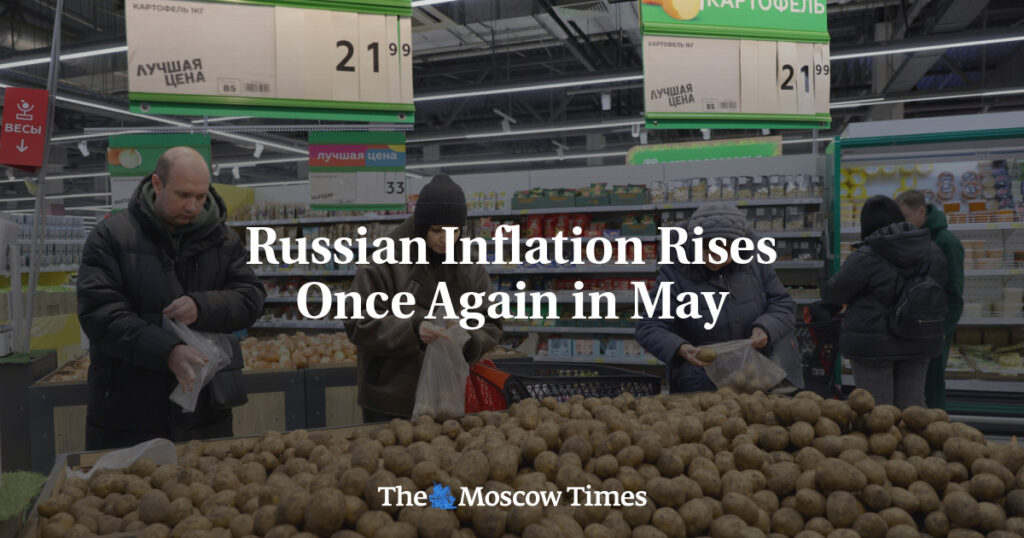In May, the pace of inflation in Russia accelerated once more, a trend attributed to the significant public spending undertaken to support the military offensive in Ukraine. While this expenditure has bolstered the country’s economy amidst harsh Western sanctions, it has also led to a surge in prices and labor shortages across various sectors unrelated to the conflict. According to Russia’s statistics agency Rosstat, inflation reached 8.3% on an annual basis in May, the highest recorded since February 2023, showing a notable increase from the 7.8% rate observed at the end of April. This figure significantly surpasses the country’s official inflation target of 4.0%.
The rapid escalation of prices has placed mounting pressure on Russia’s Central Bank to consider additional hikes in interest rates in order to curb inflation. Despite maintaining the key interest rate at 16% in the recent past, the Central Bank has indicated a potential for future increases if inflation continues to rise unchecked. German Gref, CEO of state-owned Sberbank, cautioned that Russia’s economic growth remains precarious, relying heavily on government expenditure to drive up wages and consumer spending rather than fostering sustainable investment or increased productivity.
This situation underscores the delicate balance between supporting immediate economic stability and addressing long-term growth concerns in Russia. The looming specter of inflation and the need for prudent monetary policy decisions to mitigate its impact present a challenging landscape for policymakers aiming to navigate through these complex economic dynamics.
